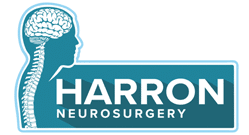Traumatic Brain Injury (TBI)
Brain Trauma
Traumatic brain injury occurs when an external force causes damage to the brain. There is a spectrum of brain dysfunction that ranges from mild to severe and life-threatening.
A concussion is an example of a mild traumatic brain injury (mTBI). A concussion results from a bump or hit to the head that causes the brain to move rapidly back and forth. This movement results in damage to brain cells and can create chemical changes in the brain.
Symptoms of Concussion or (mTBI)
After a bump to the head, the symptoms of a concussion may be present within an hour, or it may take some time to notice the effects. General symptoms of a concussion are:
- Dizziness
- Headaches
- Blurred vision
- Nausea
- Vomiting
- Slurred speech
- Appearing dazed
- Ringing in the ears
- Delayed response to questions
- The person may or may not lose consciousness
These symptoms may pass within one to two weeks, or they may last indefinitely. Some patients experience a period of “brain fog” when they cannot think clearly. Concussion and/or mTBI can also affect emotions and sleep patterns. It is important to seek medical attention after any bump to the head that causes the above symptoms. Your doctor will advise you on how to care for your concussion.
Treatment for Concussion
Treatments for concussions vary depending on severity. The most important step towards recovery is following your doctor’s instructions. Below are some ways to manage symptoms of concussion:
- Get lots of rest and don’t hurry to resume daily activities such as work or school.
- Avoid doing anything that could risk another blow or jolt to the head.
- Ask your doctor when it’s safe to drive a car, ride a bike, play sports or use heavy equipment, as your ability to react may be slower after a brain injury.
- Take only the medications your doctor has approved including over-the-counter medications.
- Avoid computer games, texting, and other cognitive activities while the brain is resting.
The best way to treat a concussion is to prevent it! As often as possible, wear protective gear such as a helmet for any activity that may increase your risk of head injury.

